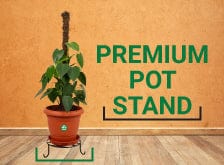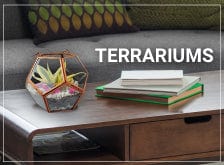How to Grow
Companion planting - Keep the Friends together
We all love plants. We love nature. We love to spend time in the Garden. There is one thing that we all hate in common, Pests. Yes, These pests attack our plant babies, and many times it is so frustrating to watch our loved plants struggle to survive against these pests.
There are so many pest control solutions available, but there are no one-size-fits-all solutions for these issues. Using chemical fertilizers is again bad for our garden. When we plant vegetables, it is not recommended to use chemical fertilizers as we all know the adverse effects of synthetic fertilizers.
But there is good news, You can avoid pests and improve plant growth just by planning where you are going to plant what. There are many plant friends which work together and stay happy if planted together. This is called companion planting.
Companion plants are those which complement the growth of other plants concerning yield, pest & disease resistance, and mechanical support. Many companion plants can be grown along with our vegetables, to get the best out of our hard work. To reap all the benefits of companion plants, one should know how to select these plants and how to grow them. Here are some important tips for companion plants selection.

Companion plants have a beneficial relationship with the main vegetable crops. Below are some important advantages of going for companion planting.
Benefits of companion planting:
- Companion planting helps to retain moisture & prevents soil erosion
- Reduces weeds growth
- Can grow more number of plants in a smaller space
- Increases diversity of plants
- Helps in increasing yield of crop plants
- Attracts more number of pollinators
- Companion plants reduce the loss of pest attack
- These plants act as pest repellents
- Reduces disease spread

Onions Like Carrots
Carrots should be planted near the onions. So that onions repel the carrot flies and carrots benefit onions by loosening the soil. Other healthy friends of onions are rosemary, cabbage, beets. Growing these crops together benefit each other and increase the yield of the crops. ( onion seeds, carrot seeds)
Tomatoes and Basil are Best Friends
Grow basil as a companion plant with the tomatoes. Basil repels some of the pests like flies, mosquitoes and helping in increasing the yield of the tomato plants. Other healthy friends of tomatoes are marigold and spinach. Marigold repels nematodes and other pests. ( Tomato seeds, basil seeds)
Chilies and Basil like to be together
Grow basil plants along with peppers, as basil increases the flavor of peppers and repels fruit flies, aphids, spider mites, and mosquitoes.(Chilli seeds)
Put Carrots with Tomatoes
Carrots can be grown with tomatoes. Carrots are heat sensitive, and tomato plants provide shade for them and secrets solanine content, this is a natural insecticide repels flies. And even carrots benefit tomato plants by loosening the soil, aerating soil.
Radishes and Cucumbers Make a Good pair
cucumbers can be grown with the radishes to attract cucumber beetles from the fruits. Other friends of radish are cabbage, beet, lettuce, and spinach. ( Radish seeds, cucumber seeds )
Examples of companion planting:
|
Crop plants |
Companion plants |
|
Onions |
Carrots, rosemary, cabbage, beets |
|
Tomatoes |
Basil, marigold, celery, spinach |
|
Chilies |
Onion, spinach, basil |
|
Carrots |
Tomato, rosemary, onion |
|
Radish |
Cucumber, cabbage, beets, lettuce, spinach |
Growing of companion plants together immensely help each other. They help in the growth and development of all plants. Companion planting mimics the natural ecosystem in your garden.




Thank you for bringing such topic on companion plants for the vegetables, I really loved the article which you have written. Thanks for sharing this information. It’s a great source of knowledge; I think it will be helpful for lot of people who are looking for
https://www.thepestman.co.nz/
Very significant information not only for farmers, gardeners, nurseries but also for common people interested to grow all these crops, vegetables and plants.
Thank ou very useful information
useful information
Thank you